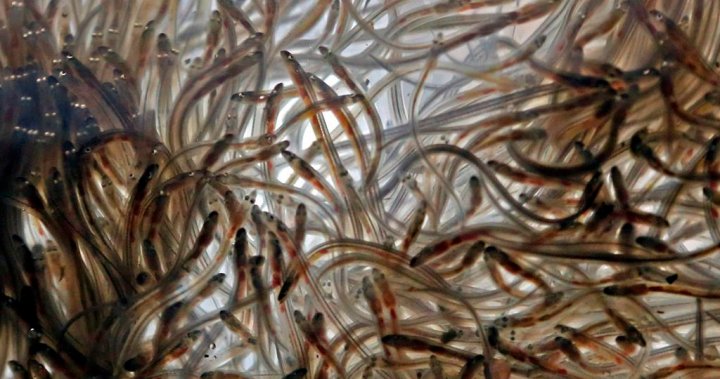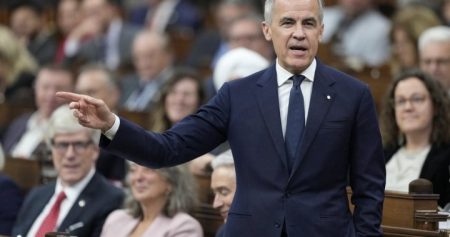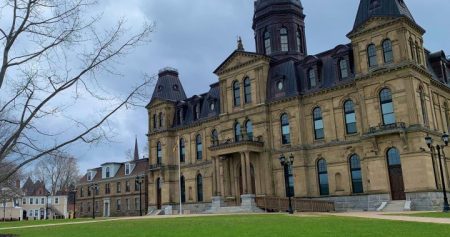The Canadian federal government’s proposed quota redistribution for the 2025 Maritime elver fishery has sparked significant controversy among existing commercial license holders. The Department of Fisheries and Oceans (DFO) plans to allocate 50% of the total allowable catch (TAC) of 4,980 kilograms to First Nations fishers, a move broadly accepted as part of ongoing reconciliation efforts. However, the core of the dispute lies in the DFO’s proposal to allocate a further 28% of the TAC to a new pilot project, leaving commercial license holders with just under 22% of the total catch. This represents a dramatic reduction from the 9,960-kilogram TAC maintained since 2005, and an even steeper drop from the quotas fished before 2022, with losses ranging between 60% and 90%. Commercial fishers argue that this drastic redistribution will cripple their businesses and create further instability in a fishery already grappling with past closures due to illegal activities and violence.
The proposed pilot project aims to distribute the 28% allocation among individuals already involved in the fishery, including those currently employed by commercial elver fishing enterprises. This aspect has drawn particularly strong criticism from existing license holders, who argue that it essentially carves up their businesses and distributes portions to their own employees. They contend that this model disincentivizes investment and growth within the industry, as companies face the prospect of having their quota fragmented and distributed among their workforce. Stanley King, a commercial license holder, highlights the absurdity of this approach, stating that some license holders will be left with barely more quota than their former employees. This, he argues, is a “slap in the face” and fundamentally “anti-business.”
The pilot project’s allocation framework proposes licenses for 120 individuals currently employed by commercial license holders, accounting for 27% of the overall quota. An additional 1.5% would be allocated to 30 fishers who currently harvest adult eels. Commercial operators argue that this redistribution will not only decimate their businesses but also eliminate job opportunities within the industry. Stanley King projects that his company, Atlantic Elver Fishery Limited, would be forced to drastically downsize, retaining only owners and managers who would essentially have to fish for themselves. The capacity to hire employees would be eliminated, significantly impacting local economies and livelihoods.
The impact of the proposed quota changes is starkly illustrated by the case of Wine Harbour Fisheries Ltd., a family-run business on Nova Scotia’s eastern shore. Their pre-2022 quota of 1,200 kilograms would plummet to a mere 137 kilograms under the proposed system. Michel Samson, legal counsel for Wine Harbour Fisheries, expresses bewilderment at the DFO’s decision to dismantle a successful fishery to accommodate new entrants, particularly when the redistribution involves allocating quota to the license holder’s own family members. While acknowledging the importance of increasing First Nations participation in the fishery, Samson questions the logic behind the pilot project and its potentially devastating impact on established businesses.
The DFO’s justification for the quota redistribution rests on the principle of broadening the benefits of the elver fishery and increasing First Nations participation. With a stable TAC, the DFO argues that redistribution is the only means to accommodate new entrants without jeopardizing the elver stock. This argument, however, fails to address the concerns of commercial license holders who see the pilot project as a poorly conceived and ultimately destructive approach to achieving these goals. They maintain that the proposed changes will not only decimate their businesses but also create further instability within the fishery.
The DFO has invited written feedback on the proposed quota redistribution until December 16th. The outcome of this consultation process will be crucial in determining the future of the Maritime elver fishery. Commercial license holders are urging the DFO to reconsider the pilot project and explore alternative approaches that address the goals of increased First Nations participation and broader benefit distribution without undermining the viability of existing businesses and jeopardizing the long-term sustainability of the fishery. The DFO’s response to this feedback and its willingness to engage in meaningful dialogue with all stakeholders will be critical in determining a path forward that balances competing interests and ensures the long-term health and prosperity of the elver fishery.










